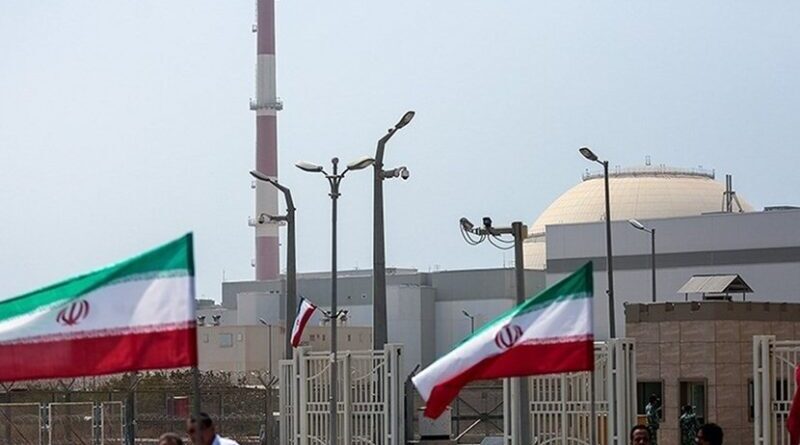Debunking The Harvard Report On Iran Nuclear Past – OpEd
Over a decade ago, I briefly joined Harvard’s Belfer Center’s Program on Managing the Atom and took part in some panel discussions before I realized it’s basically a den of pro-Israel experts and left. Therefore, I am hardly surprised that this outfit has now churned a new report that puts a seal of scientific approval on Israel’s latest allegation against Iran – that it has stolen over 100,000 nuclear documents from a Tehran warehouse, proving that Iran had a substantial and advanced nuclear weapons program before 2003, some of which has continued since then.
First announced by Prime Minister Benjamin Netanyahu with much fan-fare last April, the Israeli allegation was cited in President Trump’s subsequent withdrawal of the US from the Iran nuclear deal, providing Trump and company with a timely justification.
Leaving aside the ‘Alice-in-Wonderland’ claim that Iran put all its secretive nuclear documents in a poorly-guarded warehouse in a commercial district of Tehran, the Harvard report’s dubious content is revealed by the introductory admission that not one of its authors reads Farsi and the group visiting Israel did not include any “authentication expert.” But, there are several Iranian scholars at Belfer Center who could have assisted with the Farsi documents and, perhaps, with the authentication, but for some reason the group self-limited to reliable (pro-Israel) pundits, adopting at face value the “few original documents” shown to them by the Israeli intelligence operatives.
Imagine writing an authoritative report concerning a “treasure grove” of documents based only on the actual examination of a “few original documents” in a language that none of these experts could understand!
Indeed, this would be a laughing matter if the subject, i.e., a concerted effort to pin “nuclear proliferator” on Iran, weren’t so serious. The mere possibility that Israel may have fabricated some of these documents in order to smear Iran does not even occur to these respected Harvard experts, as if Israel is not capable of any such mischief and its allegations against its chief Middle East adversary are sacrosanct. One innocent question is why did this group after taking the trouble to travel to Israel was content with examining only a few documents and why didn’t they ask to see more? Surely if they had bothered to take along a Farsi-speaking experts such a request would have made perfect sense.
A clue to the duplicitous nature of this report, whereas the authors initially claim that their finding does not lead to any “particular policy conclusion,” in the rest of the report they contradict themselves by parroting Israel’s point about the implication of this finding with respect to the nuclear deal’s “sunset clause” and the lifting of current restrictions on Iran’s fuel cycle.
In other words, the report’s finding at this particular time is to lend support to the American/Israeli efforts against Iran and thus make the “liberal” Belfer center more policy relevant in Trump-dominated Washington. The Center’s past director, Graham Allison, repeatedly claimed without any doubt that Iran’s hidden purpose of the nuclear fuel program was to make bombs, without ever providing any proof.
Similarly, the authors of this report recycle the Israeli allegations of Iran’s nuclear weapons program and press for a thorough IAEA investigation and the re-opening of IAEA investigation of “possible military dimension” issues, which the agency closed after the successful resolution of all the issues in Iran’s favor. Without surprise, the Harvard report does not bother to state that after the most robust inspections in IAEA history, the IAEA has repeatedly confirmed the absence of any evidence of diversion of nuclear material.
Another evidence of the report’s duplicity is that while insisting that they were not able to authenticate the documents, the authors nonetheless draw on the “scope” of the documents to conclude that they are “convinced” the documents are “real.” This ought to make Orwell and Foucault shiver in their graves. That is tantamount to taking flight of critical faculty and succumbing to the depth of unwarranted academic ‘innocence’ ignoring the treacherous world of state propaganda and “manufactured evidence.” This travesty of “scientific research” is also reflected in uncritical embrace of practically every single nuclear allegation and insinuation purportedly derived from these alleged Iranian documents.
Case in point, the authors repeat the (nuclear pariah) Israeli allegations regarding nuclear experimentation at Parchin military complex, which has been repeatedly visited by international inspectors, who have conducted environmental sampling, without ever reporting anything suspicious.
Also, the report fails to mention that in October 2003 Iran adopted the intrusive Additional Protocol, allowing unprecedented inspections, which does not sit well with a nuclear proliferating state with much to hide.
Indeed, this is precisely why Israel has refused to join the NPT and adhere to a minimum IAEA inspection regime, in order to protect its nuclear secrets. Sadly, throughout its history, Harvard’s Managing the Atom program has had practically zero focus on Israel and its nuclear arsenal, succumbing to the familiar Israel “exceptionalism.”
In conclusion, today Iran is under siege on all economic, diplomatic, and security fronts, confronted with the risk of an asymmetrical warfare with the US where the ‘expert will to knowledge’ plays a crucial complementary role in providing the necessary rationalization for targeting Iran.
The Harvard report is a sham by the standards of scientific inquiry and, at the same time, another veritable proof of dynamic interplay between knowledge and power. It is reminiscent of another report, the “Iraq Strategic Weapons – A Net Assessment,” put out by the British think tank International Institute For Strategic Studies (IISS), prior to the “pretextual” Iraq war. That report, co-authored by Gary Samore, a member of Belfer center until very recently, is now a veritable proof of that think tank’s atrocious role in war propaganda. History will not treat this new Harvard report any kinder.


Excellent article exposing the critical service these academic institutions provide for the Zionist regime under the veneer of objective value-free scientific research.